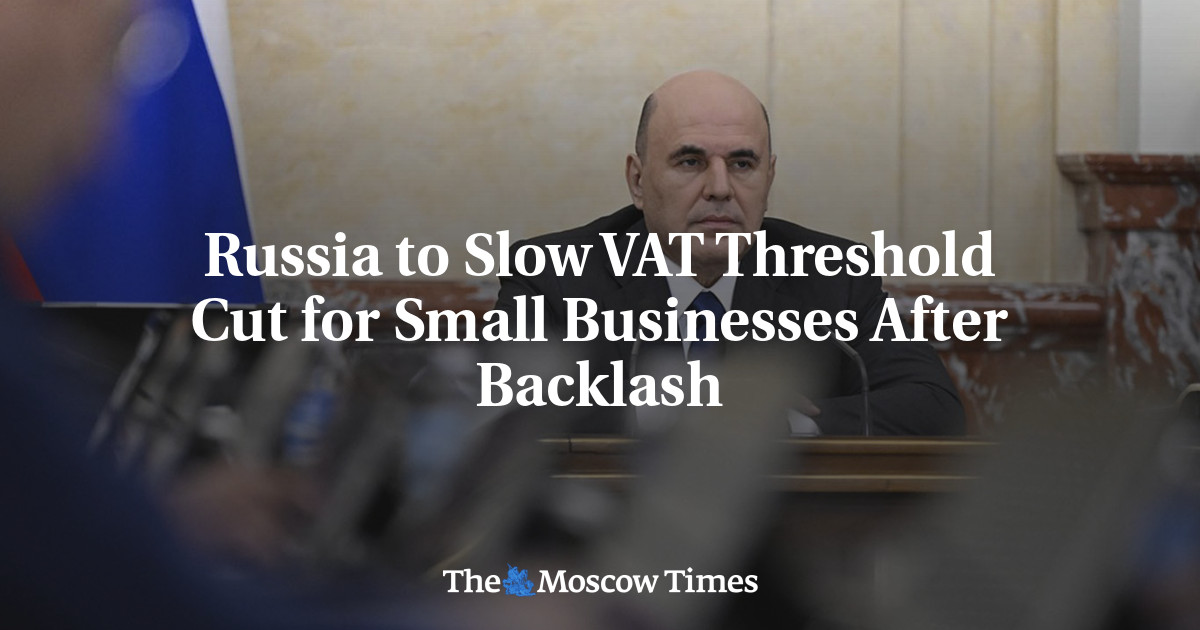Russia will phase in its plan for a value-added tax (VAT) hike for small businesses over time after entrepreneurs warned that abrupt changes could devastate the sector, Prime Minister Mikhail Mishustin announced Thursday.
Currently, small and medium-sized businesses that use the simplified tax system are exempt from paying VAT if their annual revenues are lower than 60 million rubles ($739,000). The Finance Ministry proposed cutting that ceiling to 10 million rubles ($123,000) as part of a broader package to raise the VAT rate from 20% to 22% in 2026.
Mishustin said the revised proposal will phase in the lowered threshold. It will start at 20 million rubles in 2026, 15 million rubles in 2027 and then the originally planned 10 million rubles in 2028.
He added that the government was considering a temporary moratorium on penalties for first-time violations of the new rules.
“During the extensive discussion, proposals from lawmakers, business leaders, experts and NGOs on tax reforms were considered and reported to the president,” Mishustin said at a government meeting.
The step back comes amid growing alarm among entrepreneurs and business lobbies who warn that thousands of small firms could be forced to shut down or move into the shadow economy.
Small and medium-sized businesses account for more than 20% of Russia’s GDP and employ 31 million people, or 40% of the total workforce, according to Economic Development Ministry data cited by Reuters.
Roughly 1.4 million companies and 3.1 million individual entrepreneurs currently use Russia’s simplified tax system, which allows small and medium-sized businesses to pay lower flat tax rates and exempts them from VAT up to the current income threshold.
Business news outlet The Bell estimated the original VAT threshold cut could affect up to 450,000 small firms, primarily in retail, services and manufacturing.
Russia’s lower-house State Duma is expected to include Mishustin’s revisions in the tax reform bill ahead of its second reading, according to The Bell.

